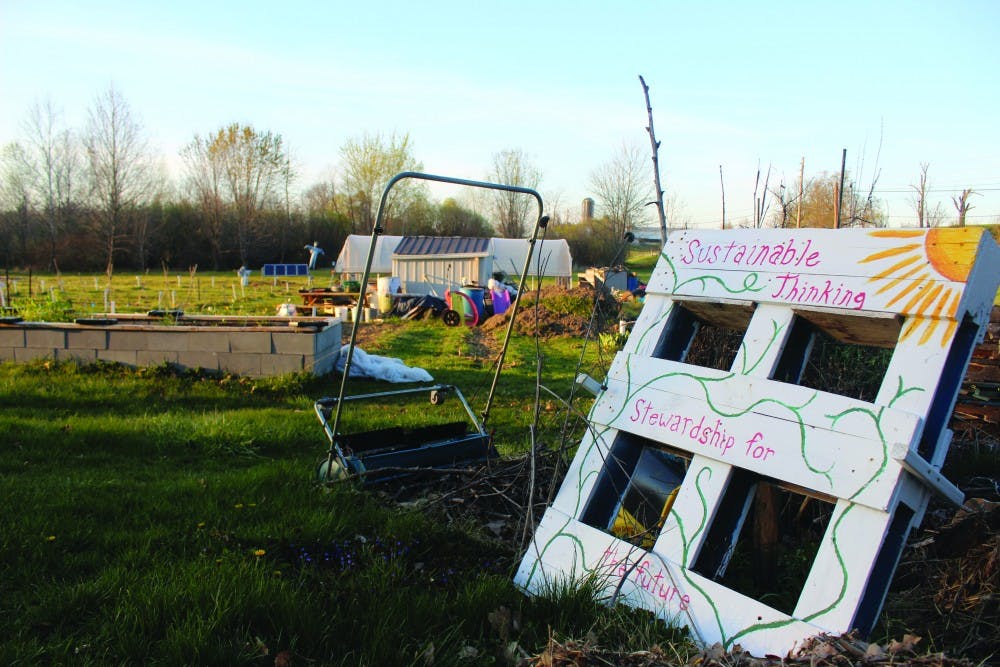Following the development of a new sustainability program and a grant donated by the National Science Foundation, Shippensburg University put forth additional environmental conservation efforts during the 2015-16 school year.
Titled “Teaching for a Sustainable Future,” these initiatives will expose university professors to how students can be educated about living in today’s society, while remaining conscious of current environmental issues.
SU’s grant was one of about 15 implementation grants given to colleges and universities nationwide. The $49,000 donation will be made toward integrating education on sustainability into a variety of university courses involving humanities, social and traditional sciences and mathematics.
“What’s interesting is that sustainability can be incorporated into so many classes,” said Steven Haase, chair of the Environmental Steering Committee (ESC). “Humans are the driver of climate change. It’s important to be asking how we can change our behavior.”
One of the largest obstacles people face is how to make the issue of living sustainably possible for everyone, Hasse said. Shippensburg Produce and Outreach, a non-profit organization that distributes produce to more than 500 families in the Shippensburg area each week, helps provide local community members with resources they may not have had access to otherwise.
Additionally, much of the produce grown on SU’s student and faculty-run campus farm is donated to the university’s dining services or to Shippensburg Produce and Outreach, before going back into the Shippensburg community.
Haase said that although less wealthy communities may not be able to obtain more environmentally friendly resources, SU students are fortunate to have these materials at their disposal.
“We have the resources to be moving forward on the right track, while not everyone has that capability,” Haase said. “When families are struggling to put dinner on the table, [sustainability] may not be an issue on the top of their list.”
Haase said that although it is never too late to make the transition to a greener lifestyle, he recommends that the process begins sooner rather than later, particularly at the primary school level. Educating the public that actions as small as recycling proper materials and turning lights off when leaving a room, can make a huge difference, according to Haase.
“We have to make sure that the [importance of sustainability] message keeps getting out, and the sooner we start educating the easier it is to change the behavior,” Haase said.
Beginning on April 18, SU began hosting sustainability programs such as a campus community forum, a sustainability field conference as well as student service-learning opportunities at the SU campus farm, the Food Recovery Network and others available through several local and regional partnerships.





The Slate welcomes thoughtful discussion on all of our stories, but please keep comments civil and on-topic. Read our full guidelines here.